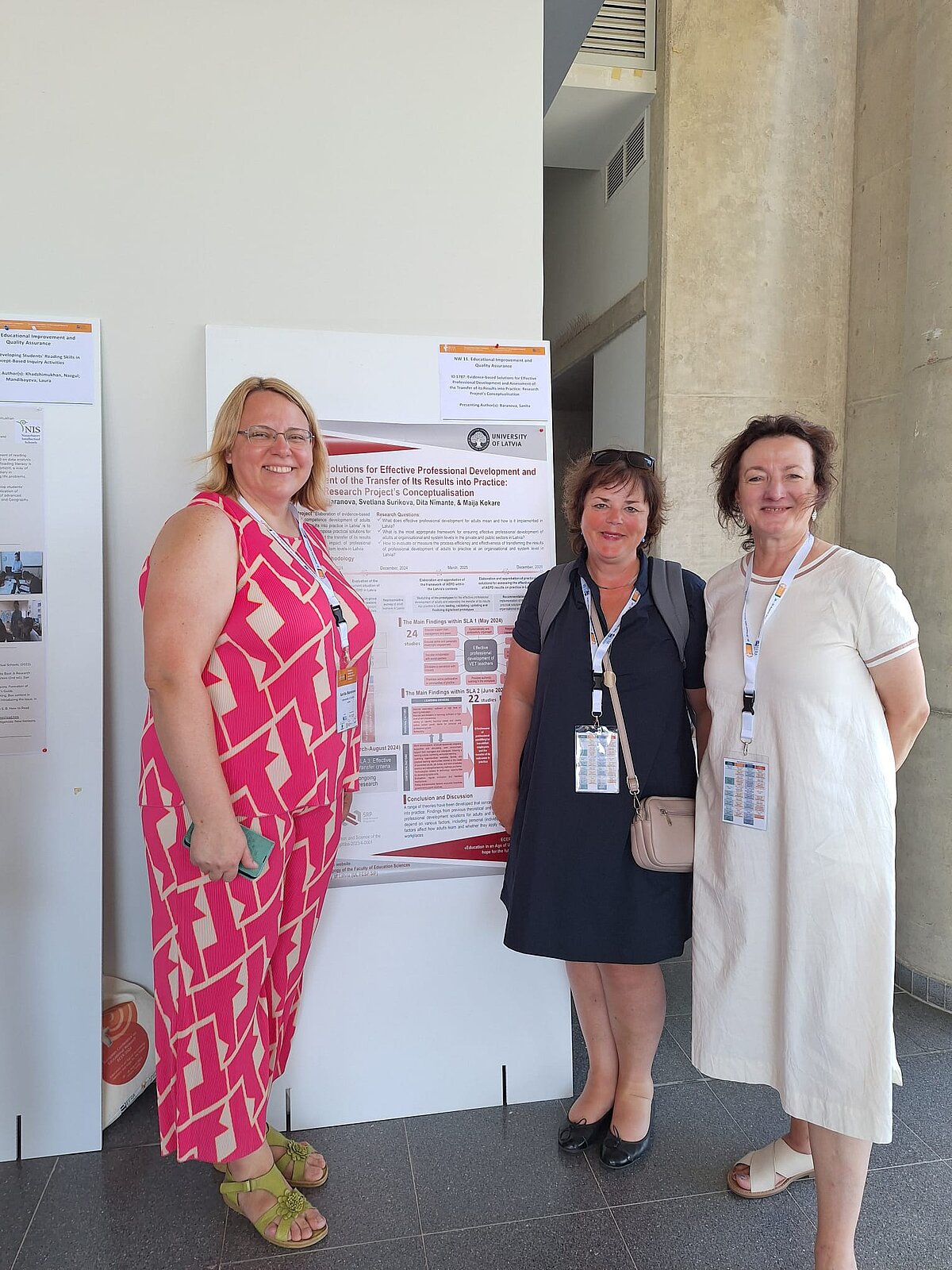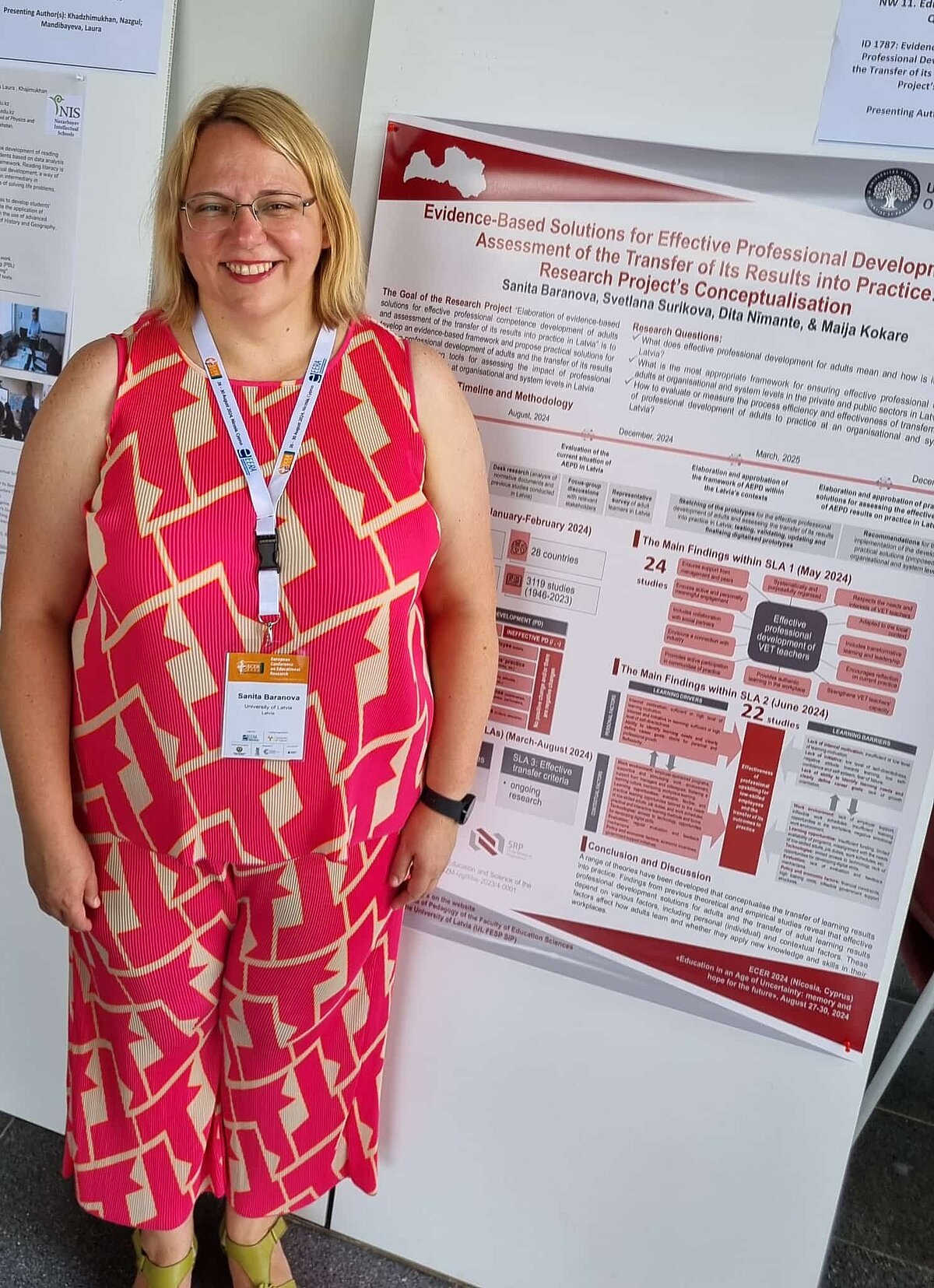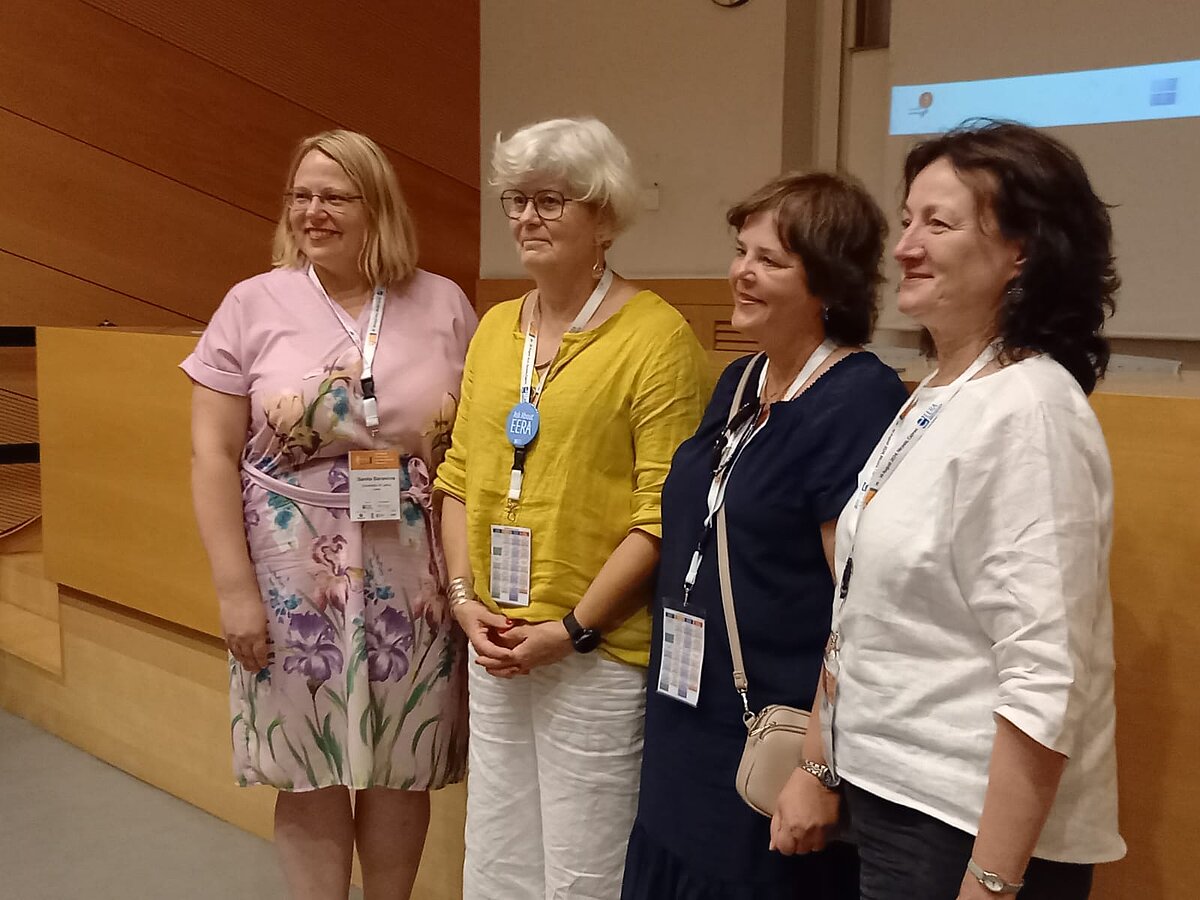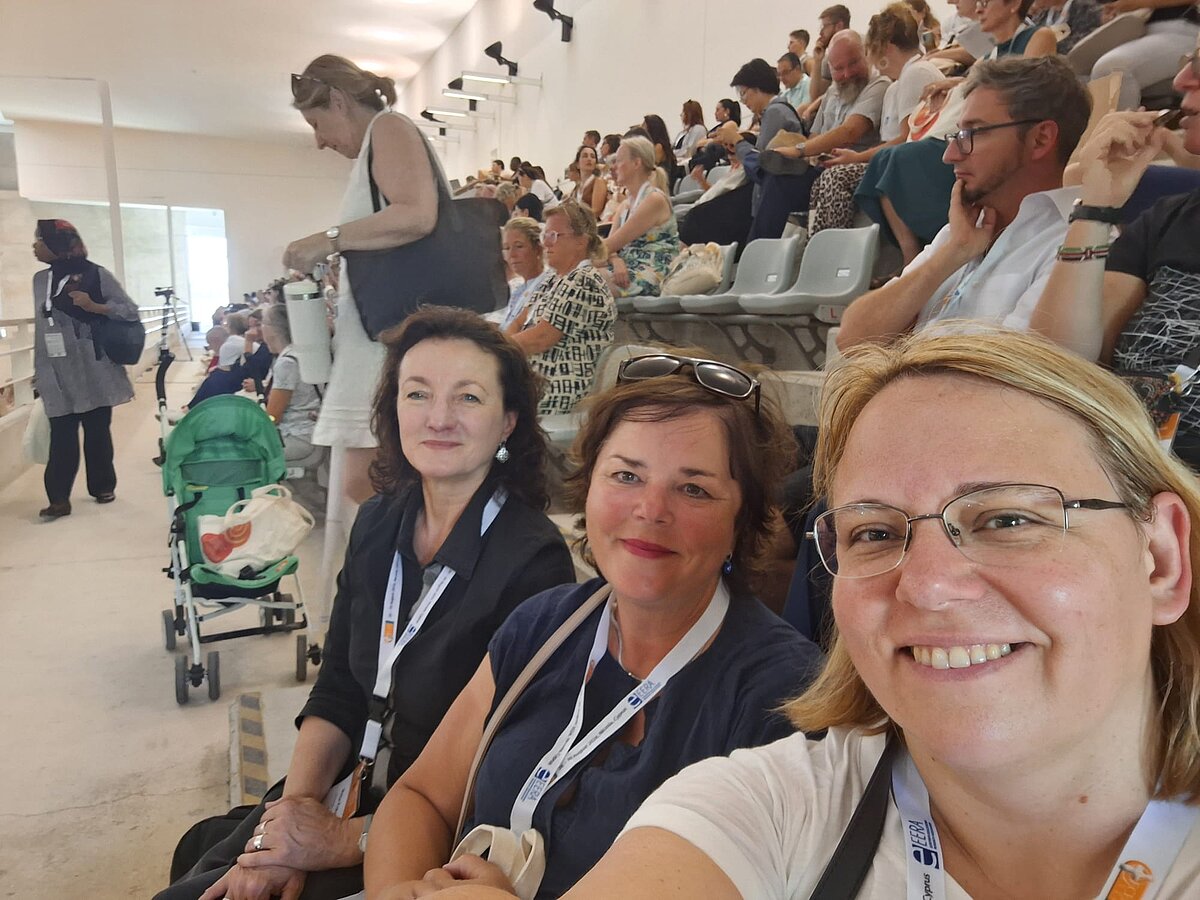
Within the framework of the SRP "Education" project "Elaboration of evidence-based solutions for effective professional competence development of adults and assessment of the transfer of its results into practice in Latvia" (No. VPP-IZM-Izglītība-2023/4-0001), the researchers Sanita Baranova, Dita Nīmante, and Maija Kokare presented and discussed the results of Task 1.1 of the first work package at the European Conference of Educational Research (ECER 2024), which took place on 27-30 August at the University of Cyprus, bringing together approximately 2,300 researchers from 71 countries worldwide.
For 30 years, the conference has brought together educational researchers from around the world (currently in 34 different research networks) and is organised by the European Educational Research Association (EERA) to promote high-quality research for the development of education (systems, processes, and opportunities) and societal growth in local, transnational, and global contexts. The ECER 2024 conference theme, "Education in an Age of Uncertainty: Memory and hope for the future," resonates with the project's objectives, clearly demonstrating that in the complexity that characterises contemporary society, simple solutions are not feasible. Therefore, it is essential to explore various aspects of the effectiveness of professional development, which, in the changing processes of sectoral development, including education, increasingly highlights the need to create theoretically grounded and conceptually aligned approaches to practice research, in order to avoid reducing the diversity of practice in the quest for evidence and to build a theoretical foundation for the transition from reproductive to transformative professional development and learning practices.
The initial project results were submitted for discussion within the international high-level scientific community at the conference in two forms: 1) the conceptual research framework as a poster presentation, whose visually appealing and clearly structured poster continuously attracted the attention of the broad scientific community throughout the conference, and 2) a summary of the theoretical analysis, a review study titled "Transferring of Professional Development Results into Practice: Designing a Framework for Systematic Analysis", which characterises and scientifically substantiates the current understanding of the effectiveness of professional development and the transfer of its results into practice, identifying knowledge gaps for further research to draw theoretically rich, evidence-based conclusions for achieving the project's results.
The review study is based on a conceptual analysis of 60 systematic studies and meta-analyses published in the last 15 years, addressing three research questions posed for the theoretical analysis: what characterises effective adult professional development; what are the main theoretical concepts representing the transfer of professional development results into practice; and what processes and indicators characterise the effective transfer of professional development results into practice.
The project's conceptual framework, presented in the poster presentation "Evidence-based Solutions for Effective Professional Development and Assessment of the Transfer of its Results into Practice: Research Project’s Conceptualisation", has received special recognition from the ECER 2024 conference experts, winning the award for the best poster (ECER Best Poster Award 2024) out of 104 poster presentations. This is the first time in the 30-year history of the conference that the work of Latvia’s researchers has received such high recognition. Associate professor Sanita Baranova of the Department of Educational Sciences and Pedagogical Innovations at the Faculty of Education Sciences and Psychology of the University of Latvia is pleased that the research group's contribution has received significant international recognition. In presenting the project's conceptual framework, she has discussed with researchers from various countries the global relevance and limitations of the study, concluding that the effectiveness of adult professional development and the transfer of its results depend on diverse and dynamic factors, including personal and contextual factors.

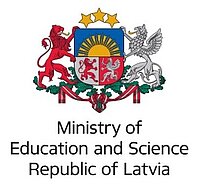


 CONFERENCE
CONFERENCE